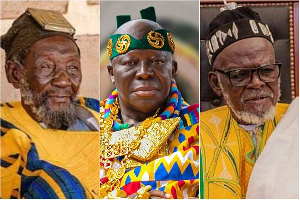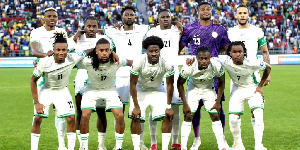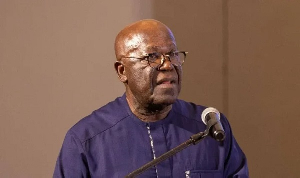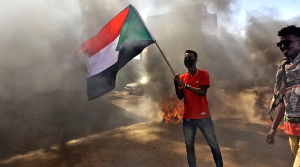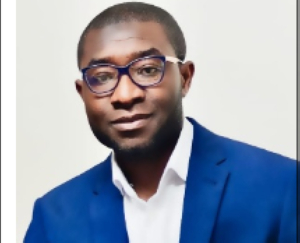Ebanbo Blog Blog of Monday, 7 October 2024
Source: Ebenezer Ansah-Boafo
Is President Akufo-Addo really responsible for jailing Protesters?
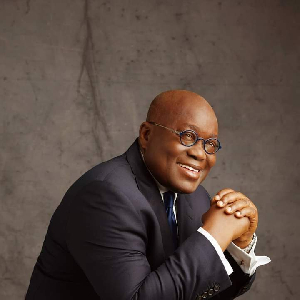
The ongoing debate surrounding the recent arrests of anti-galamsey protesters in Accra has sparked widespread conversation. Many critics have called on President Nana Addo Dankwa Akufo-Addo to release the individuals, raising questions about his role in the judicial process. During an interview with France 24, the President firmly responded to these suggestions, distancing himself from any influence over the courts, emphasising that Ghana's judiciary is independent.
The protests, which took place in the heart of Accra, aimed to raise awareness about the devastating impact of galamsey on Ghana’s environment. However, what began as a peaceful demonstration quickly escalated when roads leading to key institutions like the 37 Military Hospital were blocked. This unfortunate situation reportedly resulted in the loss of lives as emergency patients were unable to access the hospital in time. Violent clashes with the police and acts of misconduct further complicated the issue, resulting in several arrests.
As public outcry grew, many began pointing fingers at the government, demanding the release of those arrested. However, the President’s response was clear: “I am not responsible for jailing people in Ghana,” he said, reminding the public that the judiciary is an independent institution. According to him, those who broke the law found themselves in trouble with the police and courts due to their own actions. The executive arm of government, he argued, has no influence over the decisions made by the courts.
This issue, however, goes beyond the specific protests in Accra. It touches on a broader national sentiment regarding the state of Ghana’s legal system, particularly concerning protests and public dissent. Some of the President’s critics have questioned how a leader who rose to prominence through his own protests in the past can now claim no responsibility when similar actions lead to legal repercussions for others.
But the answer, as the President sees it, lies in the conduct of the protesters. Unlike his protests in the past, these recent events were marked by misconduct and disruption of essential services. While every citizen has a right to air their grievances, causing harm to others in the process raises significant concerns.
Looking forward, the question remains: how should the government balance the rights of individuals to protest with the need to maintain law and order? In a democratic society, it is crucial to protect both. The challenge, however, is ensuring that protests do not endanger lives or property while still allowing citizens to voice their concerns.
The discussion also raises a bigger question about the current climate surrounding galamsey protests. As environmental degradation worsens and pressure mounts on the government to act decisively, some groups have accused the government of being passive in the face of these issues. However, addressing environmental challenges while upholding democratic rights requires a delicate balance, one that both the executive and judiciary must navigate carefully.
In conclusion, while the President’s stance on the judiciary's independence is constitutionally sound, it doesn't negate the need for a broader conversation about protest management, environmental protection, and citizen engagement. As the country approaches the 2024 elections, these issues will undoubtedly remain at the forefront of public debate.
What's your mind? Share your thoughts with us
Entertainment



